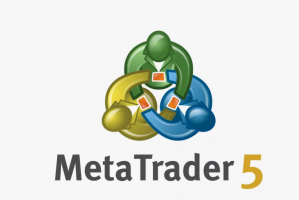Cloud Hosting vs Dedicated Servers for MT5
Which is Better for High-Frequency Trading?

What is Cloud Hosting?
Pros of Cloud Hosting for MT5
-
Scalability: Instantly add CPU/RAM during market volatility or backtesting sessions.
-
Global Reach: Deploy servers in multiple regions (e.g., London, Germany) to reduce latency.
-
Cost Efficiency: Pay-as-you-go pricing avoids upfront hardware costs.
Cons of Cloud Hosting
-
Shared Resources: Noisy neighbors can cause latency spikes during peak times.
-
Complex Setup: Requires networking expertise to optimize for MT5.
What is a Dedicated Server?
Pros of Dedicated Servers for MT5
-
Raw Power: Full control over CPU, RAM, and SSD storage for latency-sensitive EAs.
-
Predictable Performance: No shared resources mean stable execution speeds.
-
Customization: Fine-tune hardware/software for MT5’s unique requirements.
Cons of Dedicated Servers
-
Higher Cost: Upfront hardware investment and fixed monthly fees.
-
Limited Scalability: Upgrades require physical hardware changes.
Cloud vs Dedicated: Key Factors for HFT
1. Latency
Why Latency is Critical for High-Frequency Trading
In high-frequency trading (HFT), execution speed is the backbone of profitability. Delays as small as one millisecond can result in missed opportunities or slippage, directly impacting your bottom line.
Cloud Hosting Performance
Cloud hosting relies on shared virtualized infrastructure, which introduces variability in latency. While providers like AWS offer low-latency instances, virtual network hops and resource contention with other users can cause unpredictable spikes during peak times.
Dedicated Server Performance
Dedicated servers provide exclusive access to physical hardware, eliminating the "noisy neighbor" effect. With direct control over CPU, RAM, and storage, traders can achieve consistent sub-5ms execution times—ideal for latency-sensitive strategies like arbitrage or scalping.
Verdict: For pure speed and stability, dedicated servers outperform cloud hosting in HFT scenarios.
2. Scalability
The Role of Scalability in HFT
High-frequency strategies often require rapid scaling to handle volatile market conditions, news events, or large-scale backtesting.
Flexibility of Cloud Hosting
Cloud platforms excel in elasticity, allowing traders to deploy hundreds of virtual instances within minutes. This is particularly useful for parallel backtesting or handling sudden surges in trading volume. Providers like Google Cloud enable global deployment, letting you place servers closer to liquidity hubs as needed.
Limitations of Dedicated Servers
Scaling a dedicated server requires physical hardware upgrades or additional server purchases, which can take days to implement. This makes it less suited for strategies demanding immediate resource expansion.
Verdict: Cloud hosting is the clear winner for traders prioritizing agility and rapid scalability.
3. Cost Efficiency
Balancing Budget and Performance
HFT profitability hinges not just on speed but also on minimizing operational costs.
Pay-as-You-Go Cloud Models
Cloud hosting operates on a variable cost structure, where you pay only for the resources you use. This is cost-effective for sporadic trading or seasonal strategies, as you can scale down during quieter periods.
Fixed Costs of Dedicated Servers
Dedicated servers come with higher upfront and monthly costs, but they offer predictable pricing for 24/7 trading. For firms running continuous HFT operations, this can be more economical than fluctuating cloud bills.
Verdict: Cloud suits irregular trading workflows, while dedicated servers are better for continuous, high-volume operations.
4. Security
Protecting High-Value Trading Algorithms
HFT algorithms are intellectual property worth millions, making security non-negotiable.
Cloud Hosting Security Measures
Major cloud providers invest heavily in security, offering tools like AWS Shield for DDoS protection and encrypted data storage. However, shared environments inherently carry risks, as breaches in neighboring virtual machines could indirectly impact your setup.
Dedicated Server Security Advantages
With a dedicated server, you gain full control over firewalls, encryption protocols, and physical access. This isolation minimizes exposure to external threats, making it easier to comply with regulatory standards like GDPR or MiFID II.
Verdict: Dedicated servers provide superior security for proprietary strategies and sensitive data.
5. Customization
Tailoring Infrastructure to HFT Needs
HFT systems often require specialized configurations, from kernel-level optimizations to custom hardware integrations.
Cloud Hosting Constraints
Cloud environments limit customization due to standardized virtual hardware and shared hypervisors. While you can optimize software settings, hardware-level tweaks (e.g., FPGA acceleration) are typically unavailable.
Dedicated Server Flexibility
Dedicated hardware allows for granular customization, including bespoke BIOS settings, real-time operating systems (RTOS), and even FPGA/ASIC integrations. This level of control is critical for firms pushing the boundaries of low-latency trading.
Verdict: Dedicated servers are unmatched for traders needing fully customized infrastructure.
Frequently Asked Questions
-
Q: Can I combine cloud and dedicated hosting for MT5?
A: Yes! Hybrid setups let you run latency-sensitive EAs on dedicated servers while using the cloud for backups or analytics.
-
Q: Is AWS good for MT5 HFT?
A: AWS offers low-latency instances (e.g., C5n), but dedicated servers like WinServers’ Bare Metal outperform for pure speed.
-
Q: How much does a dedicated MT5 server cost?
A: Prices start at $150/month for basic setups and exceed $500/month for HFT-optimized hardware.
Final Verdict
Choosing between cloud hosting and dedicated servers for MT5 HFT depends on your priorities:
- Dedicated servers are ideal for traders demanding maximum speed, security, and hardware control.
- Cloud hosting shines for scalability, global reach, and variable-cost models.
For hybrid solutions, consider pairing a dedicated server for latency-critical trades with cloud instances for analytics or backup. Platforms like WinServers offer both options, ensuring you get the best of both worlds for your HFT strategy.